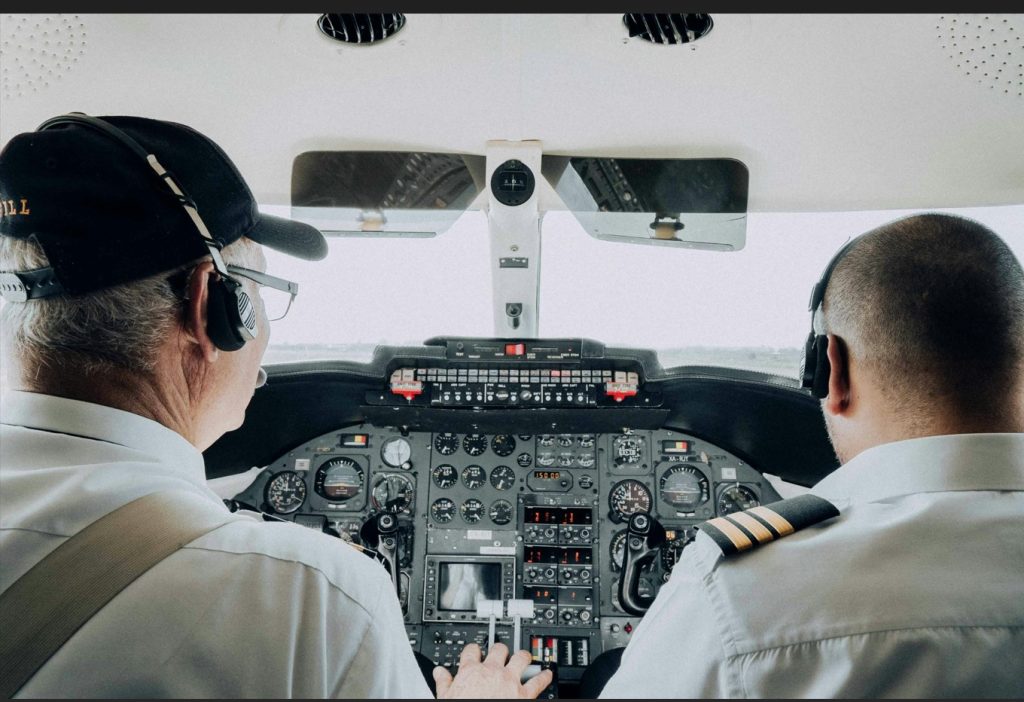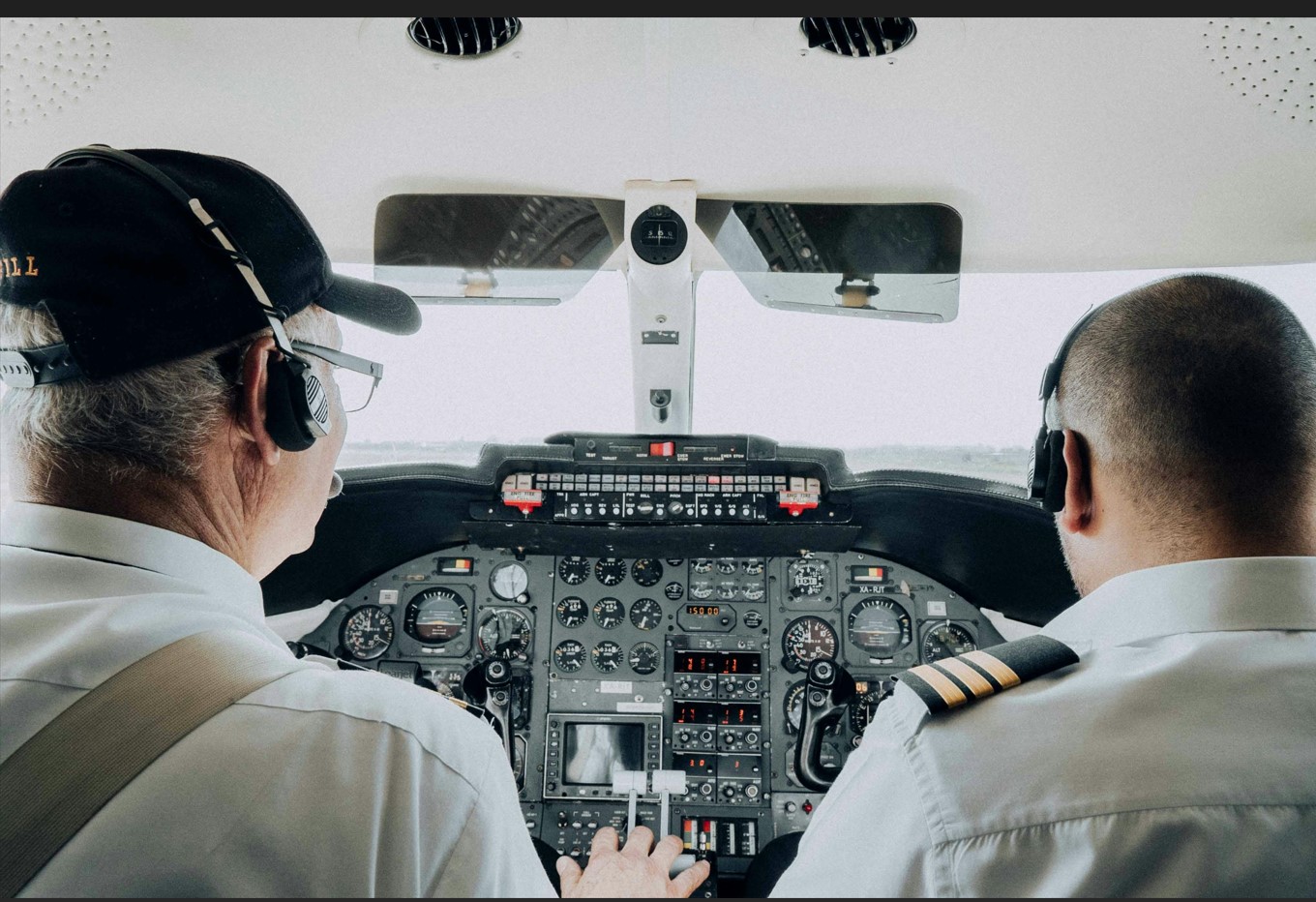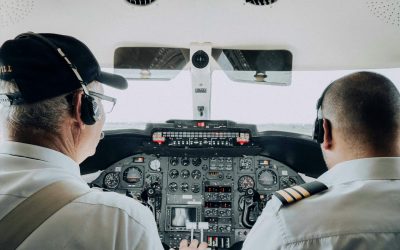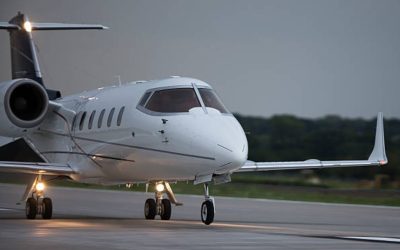CliqJets Consulting
Fostering Growth, Innovation, and Sustainability in Airline Operations
The Traditional Image of a Pilot
In the vast expanse of the sky, where dreams take flight and aspirations soar, lies a realm where pilots reign supreme. Traditionally, the image of a pilot conjures visions of a skilled aviator, navigating the heavens with expertise honed over years of flight hours. However, in today’s dynamic aviation industry, there exists a notable dichotomy between the nominal pilot and the aviator who transcends the confines of the cockpit to forge a multifaceted career path that will prepare him for positions in the corporate world.

Nominal Pilot vs. Multifaceted Aviator
The Nominal Pilot: Tethered to Tradition
At the heart of this disparity lies a fundamental difference in approach and perspective. The nominal pilot, while undoubtedly proficient in the art of flying, often finds himself tethered solely to the controls of an aircraft. Accumulating years of flight experience, these individuals may excel within their operational capacity, yet their professional growth remains confined within the boundaries of piloting, and if you trust them with a leadership or management position it’s going to be a serious challenge.
Ryanair CEO Michael O’Leary shared advice for Boeing in a Wednesday Bloomberg interview. “It’s like, never put a pilot in charge of an airline,” he said. “They want to buy new shiny toys” ROGELBERG (2024).
The Multifaceted Aviator: Embracing Diversity in the Aviation Industry
Conversely, there emerges a breed of pilots who recognize the importance of diversification and adaptability in an ever-evolving industry landscape. Beyond mastering the intricacies of flight, they proactively seek out opportunities to augment their skill set and broaden their knowledge base. These aviators understand that longevity and relevance in the aviation industry demand more than just flying prowess – it necessitates a holistic approach toward career development.
- NIGERIAN CIVIL AVIATION AUTHORITY AND FINANCIAL AUDIT OF AIRLINES IN NIGERIA.
- Passenger Crisis Management in Airline Operations
- MY KNOWLEDGE OF CHEMISTRY HELPS ME UNDERSTAND FLIGHT OPERATIONS
Continuous Education and Specialization in the Aviation Industry
One of the distinguishing factors that sets these pilots apart is their pursuit of continuous education and specialization. Recognizing that aviation encompasses a myriad of disciplines beyond piloting, they actively engage in courses, workshops, and certifications that equip them with supplementary skills. Whether it be aviation management, safety protocols, or aircraft maintenance, these individuals strive to cultivate a comprehensive understanding of the industry from various vantage points.
Interdisciplinary Expertise and Technological Proficiency
Moreover, the modern aviation landscape places a premium on interdisciplinary expertise and technological proficiency. Pilots who embrace this reality leverage emerging technologies and delve into fields such as aviation engineering, data analytics, and unmanned aerial systems. By staying abreast of technological advancements and diversifying their competencies, they position themselves as invaluable assets capable of navigating the industry’s shifting paradigms.
Cultivating Professional Networks and Collaborative Relationships
Furthermore, the forward-looking aviator recognizes the importance of cultivating a robust professional network and fostering collaborative relationships within the industry. Beyond the cockpit, they actively engage with stakeholders, participate in industry forums, and contribute to thought leadership initiatives. By forging meaningful connections and staying attuned to industry trends, these pilots cultivate a reputation for adaptability and innovation.
Embracing Lifelong Learning and Career Resilience
Perhaps most importantly, the aviator who transcends the confines of traditional piloting embraces a mindset of lifelong learning and career resilience. They understand that the aviation industry is inherently susceptible to fluctuations and disruptions, and thus, they remain agile in their approach to career development. Whether it be exploring opportunities in aviation consultancy, entrepreneurship, or academia, these individuals exhibit a willingness to embrace change and pursue avenues for professional growth beyond their flying days.
Conclusion: Paving the Way for the Future in the Aviation Industry
In conclusion, while the distinction between a nominal pilot and a pilot who embraces a multifaceted career trajectory may seem subtle, its implications are profound. In an industry characterized by constant evolution and innovation, the latter represents a paradigm shift towards a more versatile and adaptable approach to aviation professionalism. By leveraging a diverse skill set, embracing technological advancements, and fostering collaborative relationships, these aviators not only secure their relevance in the industry but also pave the way for a future where the sky is truly the limit.”






0 Comments